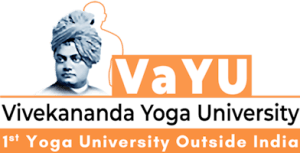
The current theories of physics are based on only 5% of the observable universe, while the remaining 95% is believed to consist of dark matter or dark energy. This gap is a significant crisis, as no field—whether neuroscience, computer science, physics, or quantum mechanics—has yet established a clear relationship with consciousness. There have been debates about whether machines can ever achieve consciousness. Some argue it’s possible through advanced computer systems, while others, like me, believe there is a fundamental difference between the inner world and the outer world.
According to the Oppenheimer interpretation, quantum mechanics, the most profound theory in physics, highlights the role of the observer, what is being observed, and the apparatus used. It suggests that the universe operates through Purusha (consciousness) and Prakriti (nature), with consciousness as the ultimate frontier of all sciences.
Consciousness cannot simply be considered a property of physical things. This brings us back to the Vedas, where consciousness is seen as both Brahman (the universal reality) and Atman (the individual self). These two realities are interconnected—Atman, the mind, acts as a mirror reflecting the transcendental reality of Brahman. Consciousness is infinite, while the mind is finite, and awareness is an integral part of this. The mind has the ability to choose and wander based on understanding and karma, but in doing so, we often lose touch with the ultimate reality. This disconnect is how we have become like machines, forgetting our true nature.
This is where a university like VaYU (Vivekananda Yoga University) becomes essential. Its courses and curriculum aim to bridge the gap between ancient knowledge and modern understanding, guiding individuals toward awareness of their true self through the wisdom of the Vedas. Interestingly, Rishis spoke about many of the challenges we face today over 1,500 years ago. VaYU offers a way to revisit this timeless wisdom, blending it with contemporary insights to help humanity reconnect with its ultimate reality.
In my view, the Rishi Munis of the Vedas exemplified divine vision and intuition—an evolved form of intelligence rooted in consciousness. AI, though devoid of consciousness, mirrors this brilliance by working for us in its unique way. AI and yoga form a harmonious synergy; this article features the ideas of Dr. Subhash Kak, which I’ve carefully combined, with AI assisting in structural refinement. As a yogi, I believe in balance, which is why we “consciously” embrace AI. Don’t you agree?
